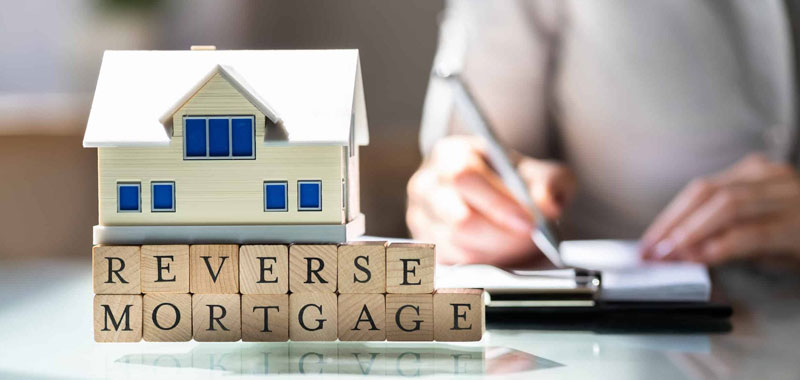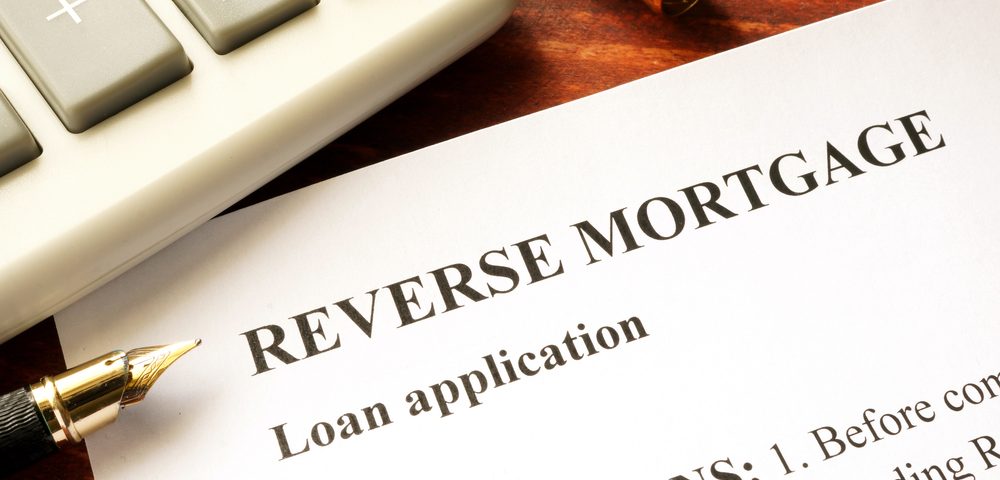Steps to Successfully Purchase Reverse Mortgage for Your Property
Steps to Successfully Purchase Reverse Mortgage for Your Property
Blog Article
Empower Your Retirement: The Smart Means to Purchase a Reverse Home Mortgage
As retired life approaches, lots of people look for efficient techniques to boost their economic self-reliance and health. Amongst these strategies, a reverse home loan arises as a practical alternative for property owners aged 62 and older, allowing them to tap right into their home equity without the need of monthly payments.
Comprehending Reverse Home Loans
Recognizing reverse mortgages can be essential for house owners looking for monetary flexibility in retirement. A reverse home loan is a monetary product that enables eligible house owners, usually aged 62 and older, to convert a part of their home equity into cash money. Unlike conventional mortgages, where customers make regular monthly payments to a loan provider, reverse mortgages enable homeowners to obtain settlements or a swelling amount while keeping ownership of their home.
The amount offered through a reverse mortgage depends on numerous aspects, including the property owner's age, the home's worth, and existing rate of interest rates. Notably, the financing does not need to be paid off until the homeowner markets the home, vacates, or dies.
It is vital for potential consumers to comprehend the implications of this financial item, consisting of the effect on estate inheritance, tax obligation factors to consider, and ongoing responsibilities related to home upkeep, tax obligations, and insurance policy. Furthermore, counseling sessions with certified professionals are often called for to guarantee that consumers completely understand the terms and problems of the funding. In general, a thorough understanding of reverse home loans can encourage house owners to make educated choices about their monetary future in retired life.
Benefits of a Reverse Mortgage
A reverse home mortgage provides a number of engaging benefits for eligible homeowners, especially those in retired life. This financial tool enables senior citizens to transform a section of their home equity into money, supplying vital funds without the demand for month-to-month home loan settlements. The cash obtained can be utilized for numerous objectives, such as covering clinical expenses, making home renovations, or supplementing retired life income, thus improving general financial versatility.
One substantial benefit of a reverse mortgage is that it does not need settlement up until the house owner relocates out, markets the home, or dies - purchase reverse mortgage. This attribute enables retired people to keep their way of life and fulfill unforeseen prices without the burden of monthly payments. Additionally, the funds received are normally tax-free, allowing property owners to utilize their cash without fear of tax obligation implications
Additionally, a reverse home loan can offer satisfaction, recognizing that it can work as an economic safety and security internet during challenging times. Homeowners additionally maintain ownership of their homes, guaranteeing they can continue living in an acquainted setting. Ultimately, a reverse home mortgage can be a strategic funds, empowering senior citizens to handle their financial resources effectively while appreciating their gold years.
The Application Process
Browsing the application procedure for a reverse home mortgage is an essential step for homeowners considering this economic alternative. The first phase involves reviewing qualification, which usually needs the property owner to be at the very least 62 years old, very own the property outright or have a reduced home mortgage balance, and inhabit the home as their primary house.
When eligibility is validated, house owners must go through a counseling session with a HUD-approved therapist. This session guarantees that they completely recognize the ramifications of a reverse home mortgage, including the duties included. purchase reverse mortgage. After finishing counseling, candidates can continue to collect necessary documents, including proof of revenue, assets, and the home's worth
The next action entails submitting an application to a lending institution, who will evaluate the economic and residential property qualifications. An evaluation of the home will certainly also be conducted to determine its market price. If accepted, the loan provider will certainly offer lending terms, which must be assessed very carefully.
Upon acceptance, the closing process complies with, where final papers are authorized, and funds are disbursed. Recognizing each stage of this application procedure can significantly enhance the homeowner's self-confidence and decision-making pertaining to reverse home loans.

Key Considerations Prior To Purchasing
Investing in a reverse home loan is a significant economic decision that calls for careful factor to consider of a number of key aspects. Evaluating your economic needs and goals is just as crucial; click this site determine whether a reverse home mortgage lines up with your long-lasting plans.

Additionally, examine the effect on your present way of living. A reverse home mortgage can influence your qualification for sure federal government advantages, such as Medicaid. Ultimately, Source seek specialist assistance. Consulting with a monetary consultant or a real estate counselor can provide important insights tailored to your individual situations. By completely reviewing these factors to consider, you can make an extra enlightened choice concerning whether a reverse home loan is the right financial strategy for your retired life.
Maximizing Your Funds
When you have safeguarded a reverse home mortgage, successfully handling the funds ends up being a priority. The adaptability of a reverse home loan allows homeowners to utilize the funds in various means, however tactical preparation is crucial to optimize their advantages.
One essential approach is to produce a budget that details your regular monthly expenditures and financial objectives. By recognizing necessary expenses such as medical care, real estate tax, and home upkeep, you can assign funds appropriately to make sure long-term sustainability. Additionally, think about using a section of the funds for investments that can produce earnings or appreciate gradually, such as common funds or dividend-paying stocks.
An additional essential facet is to maintain an emergency situation fund. Establishing aside a book from your reverse home mortgage can assist cover unexpected expenses, providing satisfaction and monetary security. Furthermore, talk to a monetary expert to check out possible tax obligation implications and exactly how to incorporate reverse home mortgage funds into your general retired life approach.
Ultimately, prudent management of reverse home loan funds can improve your monetary protection, allowing you to enjoy your retirement years without the anxiety of monetary unpredictability. Cautious preparation and educated decision-making will certainly make certain that your funds function properly for you.
Conclusion
In verdict, a reverse home loan presents a feasible monetary method for seniors looking for to enhance their look at this site retired life experience. By converting home equity into available funds, individuals can address essential expenditures and safe and secure extra financial sources without incurring month-to-month payments.
Recognizing reverse home mortgages can be vital for property owners looking for financial versatility in retired life. A reverse home loan is a financial item that permits eligible house owners, generally aged 62 and older, to transform a section of their home equity into money. Unlike conventional home mortgages, where customers make month-to-month payments to a loan provider, reverse home loans enable home owners to receive repayments or a swelling sum while preserving possession of their building.
On the whole, a detailed understanding of reverse mortgages can empower property owners to make educated decisions concerning their financial future in retirement.
Seek advice from with an economic advisor to discover possible tax obligation ramifications and exactly how to integrate reverse home loan funds into your overall retirement strategy.
Report this page